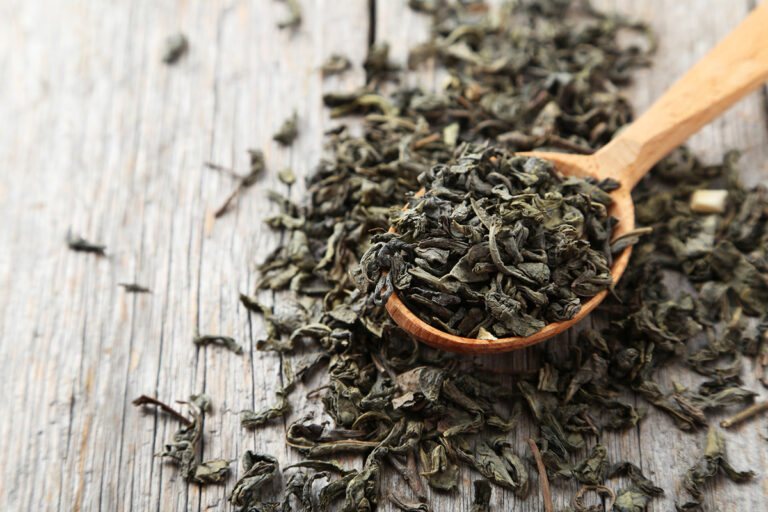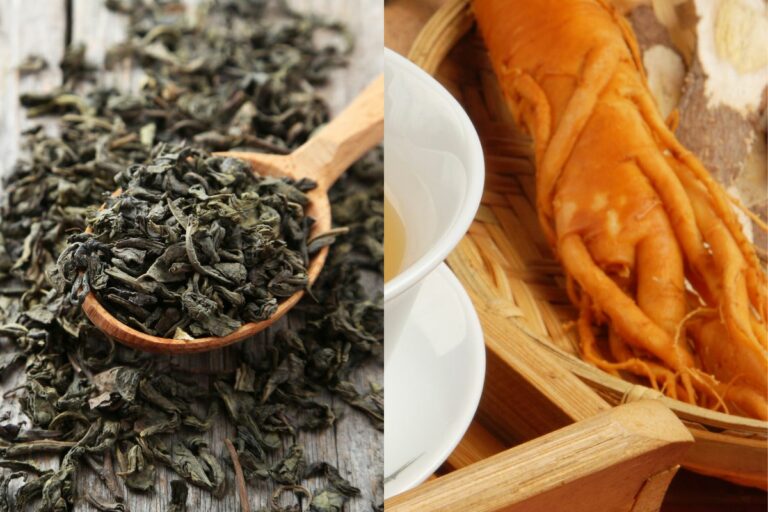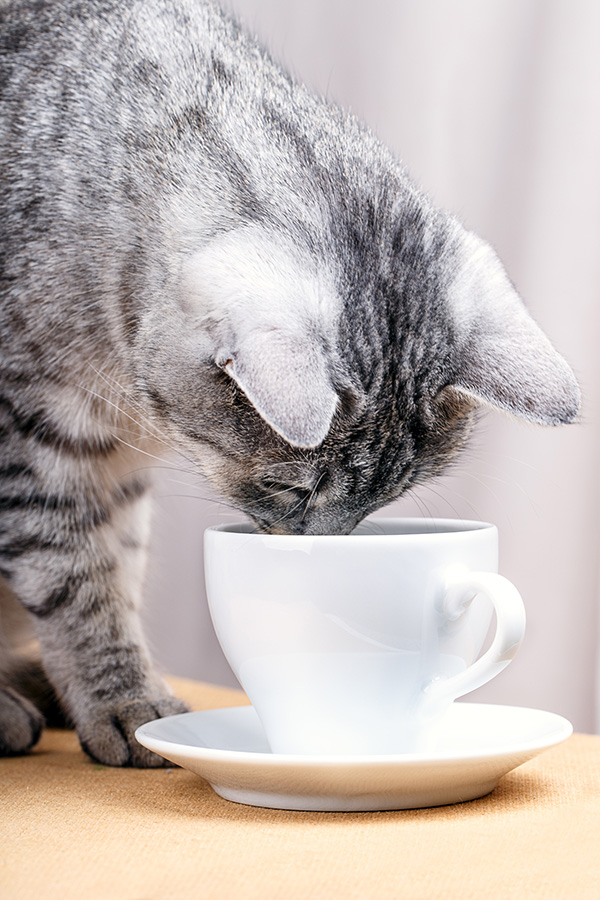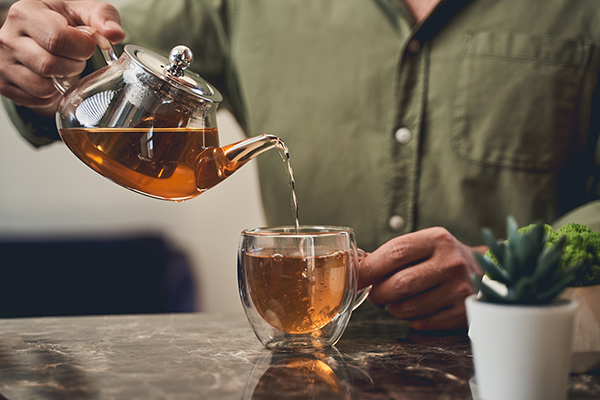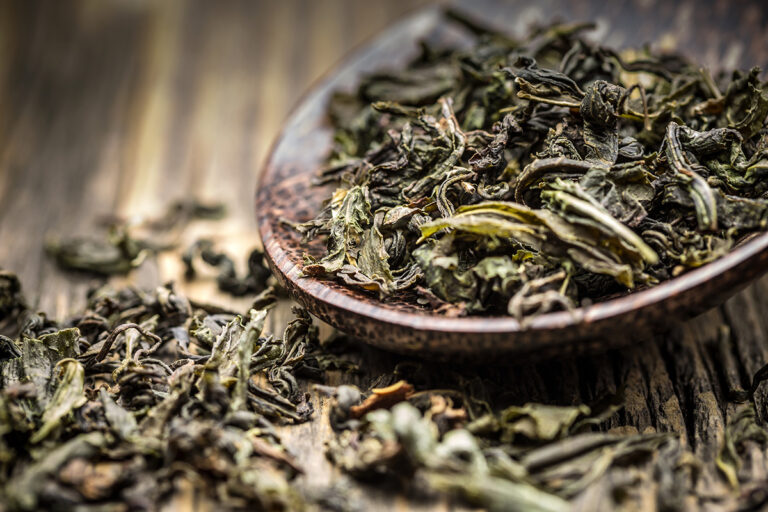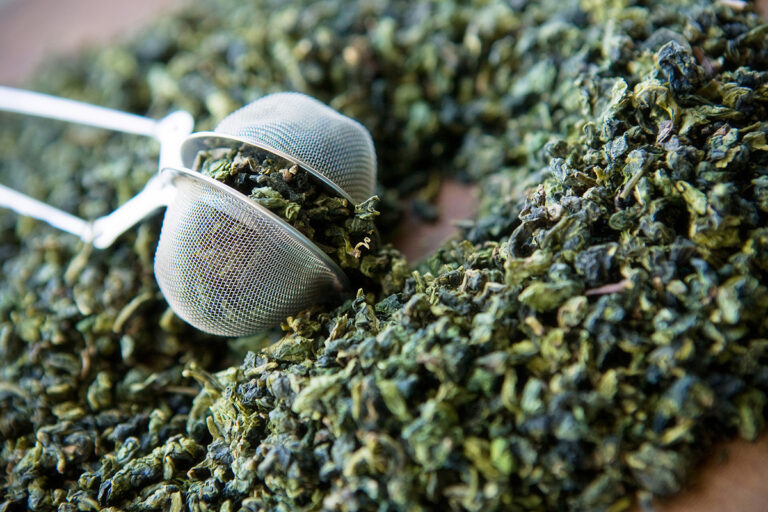Does Green Tea Stain Your Teeth? 9 Tips on How to Avoid Stains From Green Tea
Green tea is a preferred and advantageous drink option for health-conscious individuals compared to coffee and black tea.
However, maintaining a bright and unstained smile is also crucial for most people. So, many people wonder: does green tee stain teeth?
Does Green Tea Stain Your Teeth?
Sadly, the answer is yes. Green tea may leave a gray hue on your teeth. Despite having a lower pH and fewer tannins than black tea, green tea can still stain teeth.

Why Does Green Tea Stain Your Teeth?
Tannins, chromogens, and acidity are the three main reasons teas, particularly green tea, can affect teeth stains.
Tannins
Tannins are present in several plants, including tea leaves, coffee beans, and grapes, as a natural compound.
Tannins are responsible for the astringent taste and health benefits of green tea. Tannins possess anti-inflammatory properties and have been linked to potential cancer-fighting abilities.
However, tannins can also have adverse effects on teeth. When consumed regularly in high amounts, they can bind to proteins on the surface of teeth and create a rough surface that makes it easier for other stain-causing substances to stick. This can lead to tooth discoloration over time.
Chromogens
Chromogens are pigments responsible for the color of many foods and drinks, including green tea. These pigments can easily attach to the rough surface created by tannins, causing teeth discoloration over time.
Acids
Acids in green tea can also contribute to tooth staining. The pH level in green tea falls between 7-10, making it less acidic than black tea, herbal tea, and coffee (1).
Tips on How to Prevent Tooth Stains From Green Tea
For those who love green tea and want to avoid tooth stains, consider trying these tips:
- Drink through a straw: Using a straw to drink green tea can help minimize contact with your teeth and lower the likelihood of staining.
- Don’t swish or hold the tea in your mouth: Swishing or holding green tea in your mouth for extended periods can increase staining potential by allowing the tannins to bind to teeth surfaces. Drink it quickly and swallow.
- Rinse your mouth with water: To remove any leftover residue, rinse your mouth with water after drinking green tea.
- Brush your teeth regularly: Brushing your teeth twice a day with fluoride toothpaste can help remove surface stains caused by green tea.
- Use whitening toothpaste: Whitening toothpaste can help remove surface stains and brighten your teeth over time.
- Add abrasive foods to your diet: Abrasive foods such as apples, carrots, and celery can help scrub away surface stains by increasing saliva production and mechanically removing plaque buildup.
- Add milk: Adding milk to green tea can reduce the staining effect on your teeth (2). This is because milk contains proteins that bind to tannins. By binding to the tannins, milk can prevent them from sticking to your teeth and causing discoloration.
- Switch to teas with fewer teeth staining capabilities: Switching to other types of tea may help prevent tooth stains from green tea, as different types of tea contain varying amounts of tannins and other compounds that can cause staining. For example, rooibos, peppermint, ginger, and even white teas generally have lower levels of tannins than green tea and are less capable of causing teeth stains.
- Visit the dentist regularly: Regular dental check-ups and cleanings can help remove stubborn stains and keep your teeth healthy.
Green Tea Compared to Other Teeth-Staining Beverages
Tea can cause teeth stains, but some types may be less staining than others. Discover how the staining effects of green tea stack up against other popular teas and coffee.
Green Tea and Black Tea
Although green and black teas contain tannins, black tea tends to stain teeth more due to its higher concentration (13.36%) than green tea (2.65%) (3). The darker color of black tea also makes it more likely to leave noticeable stains on teeth compared to the lighter color of green tea.
Green Tea and Oolong Tea
Opting for green tea instead of oolong tea can help prevent noticeable teeth stains as it contains fewer tannins (2.65% compared to 8.66%). Oolong tea tends to be darker than green tea, making it more likely to cause visible stains on teeth.
Green Tea and White Tea
White tea, unlike green tea, has a lower tannin concentration and is less likely to cause teeth stains. White tea is made from the youngest leaves and buds of the tea plant, which contain fewer tannins than older leaves used in green tea.
Green Tea and Herbal Teas
Unlike green tea, most herbal teas do not contain tannins known to cause teeth staining. As a result, herbal teas are less likely to cause visible teeth stains than green tea. Although hibiscus and chamomile teas have therapeutic properties, excessive and extended consumption of these teas can result in tooth staining over time.
Green Tea and Coffee
The dark color and high acidity of coffee make it more prone to staining teeth than green tea, which has a lighter hue and lower acidity levels (an average pH of 7-10 for green tea vs. 4.85 to 5.10 for coffee). Coffee contains chromogens which are pigmented compounds that can stick to the enamel of teeth, causing discoloration over time. Additionally, coffee’s high acidity may lead to tooth enamel erosion and increased susceptibility to staining. Similarly to coffee, green tea contains tannins which may contribute to staining; however, it has a lower quantity than its counterpart.
Healthiest Green Teas to Try
If the potential for staining your teeth hasn’t discouraged you from drinking green tea, here are some of the healthiest green teas for you to consider.
Conclusion
To summarize, despite the various health advantages of green tea, its rich tannin content could lead to teeth discoloration.
However, several tips and tricks can help you avoid or minimize stains from green tea. These include drinking through a straw, rinsing your mouth with water after drinking, practicing good oral hygiene, and choosing white or herbal teas instead. With these tips, you can indulge in green tea’s benefits without fearing staining your teeth.
FAQ
What Is Green Tea?
Made from the same plant (Camellia Sinensis), green tea shares its origin with other popular teas like black and oolong. What sets green tea apart is that it undergoes minimal processing after being harvested, which helps to preserve its natural antioxidants and nutrients.
Can Green Tea Stain Your Teeth?
Yes, green tea has the potential to stain teeth due to its high tannin content.
Can I Drink Green Tea After Brushing My Teeth?
A general recommendation is to wait 30 minutes after brushing your teeth before having any food or drink, including green tea. Abrasives and fluoride found in toothpaste can temporarily weaken your teeth’ enamel, increasing their vulnerability to damage from acidic or sugary substances. Waiting 30 minutes allows your saliva to remineralize and strengthen your tooth enamel again.
Does Matcha Stain Teeth?
Matcha, a type of green tea made by grinding whole tea leaves into a fine powder, can potentially stain teeth due to its high concentration of tannins and chlorophyll. However, compared to other beverages like coffee or red wine, matcha has lower levels of tannins. It is less likely to cause visible stains on teeth. In addition, matcha tea may offer some protection against tooth decay and gum disease, according to research.

